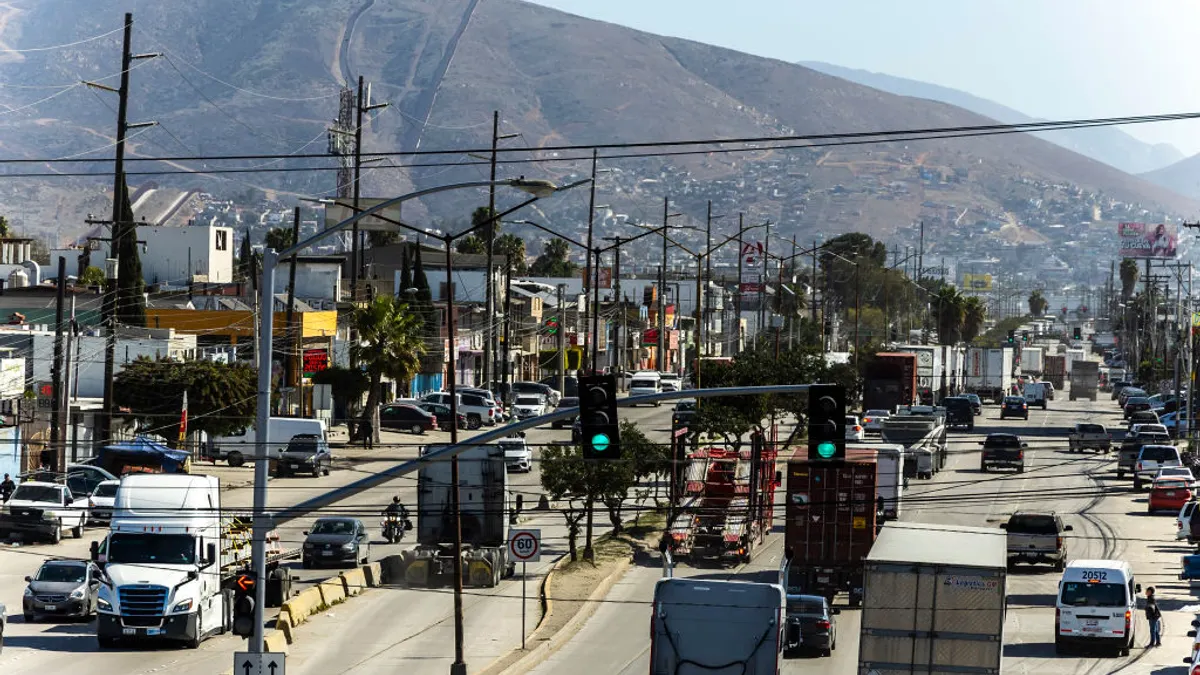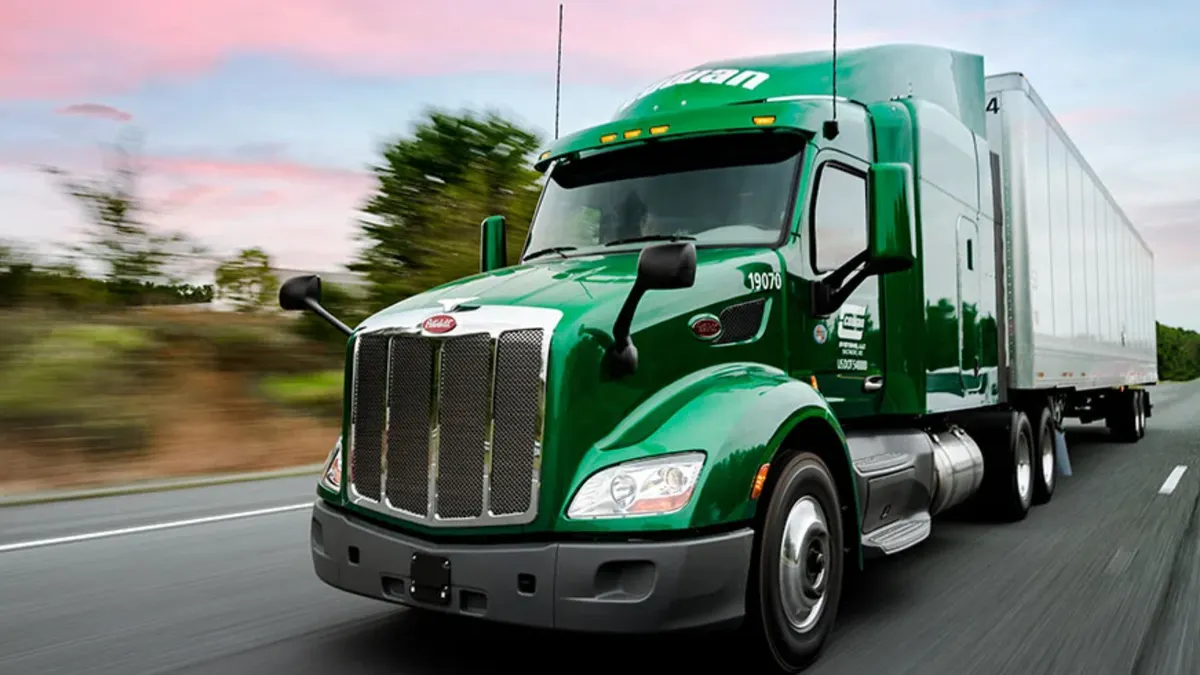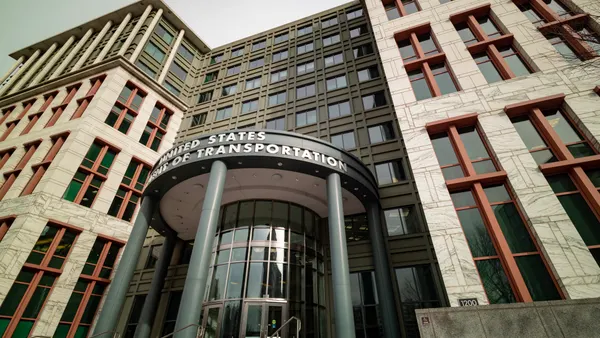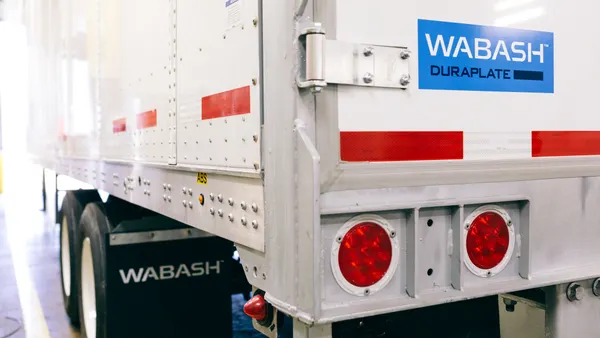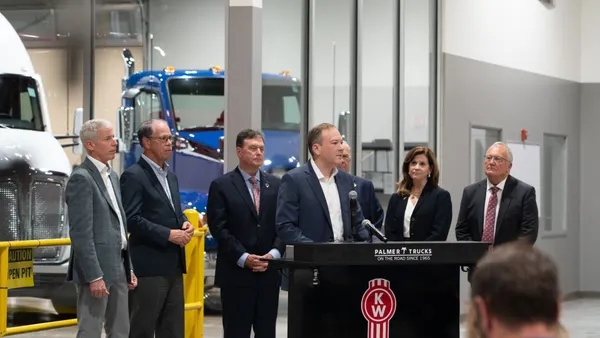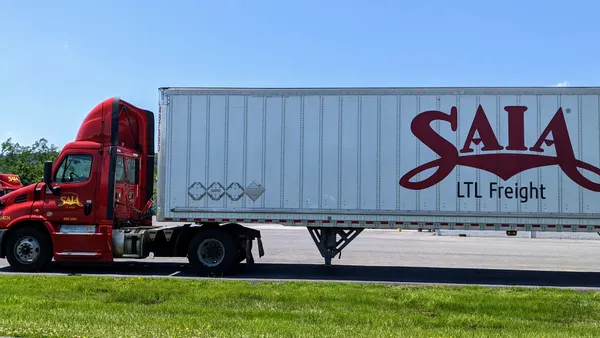Dive Brief:
- Schneider National doubled its Q1 intermodal earnings compared with the same period last year, fueled by increased shipping activity in western Mexico, CEO Mark Rourke said in Q1 earnings call.
- Rourke said a portion of its customers pulled cargo forward in the face of tariff uncertainty. The transportation and logistics company expressed uncertainty over the durability of strong volumes but was pleased across the board with its Q1 performance.
- The higher cross-border intermodal volumes give Schneider “confidence that we can withstand perhaps some of the trade lines, but it all come down to magnitude, duration, and timing, which is uncertain for us going forward,” Rourke said.
Dive Insight:
Before the tariff frenzy ensued, Schneider had made investments and strategic partnerships to better serve shippers’ logistics needs in and out of Mexico.
In April 2023, Schneider partnered with Canadian Pacific Kansas City to expand its intermodal business between the upper Midwest and Mexico. Schneider’s deal with CPKC “gives us differentiation in a very difficult place at times to get differentiation,” Rourke said on the Q1 earnings call.
“Investments in Mexico will continue to make sense for the medium and long term even with the current volatility in tariffs and uncertainty with the USMCA,” Marc Iampieri, partner, managing director and co-head of AlixPartners’ logistics and transportation practice, told Trucking Dive.
Mexico is considered a top trade partner to the U.S. In 2024, Mexico, along with the European Union, Canada and China, accounted for more than 60% of the country's trade. Mexico had about $334 billion in U.S. exports and $506 billion in U.S. imports, representing 15.8% of U.S. trade.
Iampieri said there is a long-term trend to satisfy increasing demand for exports leading to transportation and logistics services needed for the domestic market in Mexico.
“Companies that already have a presence in Mexico can use this current dynamic to solidify their positions and be ready to capitalize on the rebound when there is more certainty on trade terms,” Iampieri said in an email.
The question is when not if more companies will invest in Mexico infrastructure and logistics capabilities, according to Iampieri. Businesses with a long-term view will continue to be committed to the country, he added.
“Trucking, intermodal, rail, and warehousing services will continue to see more demand to support the growth,” Iampieri added.


